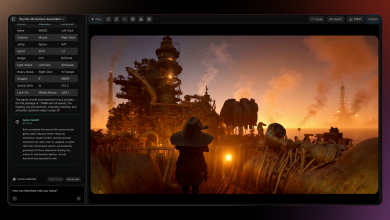Into the Metaverse: Technology, Legal Implications, and Actions reviews the current state-of-the-art in XR, explores potential legal implications of life and commerce in these new digital worlds, and offers an early action plan for industry and government to engage now as they start to put these technologies to use.
Karen E. Silverman of The Cantellus Group and Thomas A. Campbell of FutureGrasp, have produced this easy-to-read primer on the issues that will get you thinking about what it will mean to live with (and in) these technologies going forward.
Pressing questions that you will be able to explore and get answers to include:
- How to account for conduct that occurs virtually but for which harms occur in the natural world? Where does that conduct occur?
- Are there individual rights that cannot be contracted away in the metaverse? Or categories of activity for which there are limits on how liability and risk can be shifted? And is contract the right way to be thinking about rights?
- How to assess the evidentiary value of VR statements and conduct, and whether they can be used to establish patterns, intent, or character?
- How to handle intellectual property? Wealth creation/loss? Inheritance? Taxes? Insurance? Defamation?
- How to handle the protection and limits on derivative uses of truly vast quantities of personal data that will be generated every moment by XR, data that can easily be used to identify users?
Karen and Thomas highlight in the report that “If our experience with the internet or political discourse generally is any indication, relying on norms and manners to govern our XR experiences will be entirely inadequate.”
In the report, you’ll get to see how globally recognised brands that include Facebook (now Meta) ByteDance, Apple, Microsoft, Clearview AI, and Vuzix are leading in the metaverse and how this has an impact on the way you do aspects of your life, commercially and personally, going forward.
You can download the report for free today by clicking the following link: https://bit.ly/3FmxzF2
About The Cantellus Group
The Cantellus Group helps organizations and their leaders better understand – and then better manage – their use of frontier technologies. We deliver the insights and practical approach to guide the direction and decisions that will determine whether (or not) AI tools will correspond with an organization’s missions, values, strategies and risk tolerances. We integrate the disciplinary expertise of our advisors, whose backgrounds span law, compliance, government, procurement, medicine, tech, retail, finance and academia. TCG’s practical and stakeholder-inclusive approach enables organizations to do better, and then to communicate how and why they are doing better, for customers, employers, regulators and investors.
About FutureGrasp
FutureGrasp enables its clients to lead in times of rapid technology change. FutureGrasp team members have worked directly at and with clients in the highest levels in the US Government (White House, National Security Council, Pentagon, Embassies around the world), NATO, INTERPOL, the European Commission, the United Nations, Fortune 500, Silicon Valley venture capital, and startups. Clients rely on us to look beyond the chatter and hype surrounding a new technology and to pragmatically assess the worth and implications of a given path of technological development. Ours is a proven and demonstrated approach that has resulted in accurate forecasting in numerous sectors (artificial intelligence, quantum computing, semiconductors, AR/VR, nanotechnology, cybersecurity, 3D-/4D- printing, energy, and sensitive and dual-use nuclear materials), and expert briefs on their implications. We are especially well-positioned to offer a range of bespoke services for corporate and government clients, including written thought products, expert briefs, expert witnessing in technology-related litigations, startup scaling insights, government and investor connections, and organization and facilitation of roundtables and workshops.




